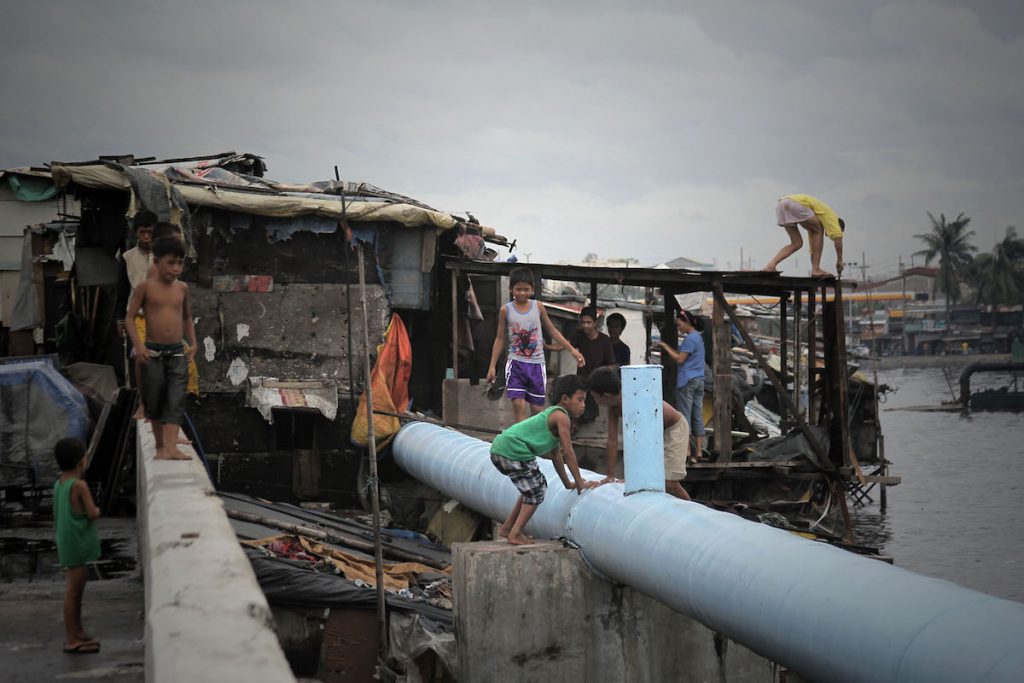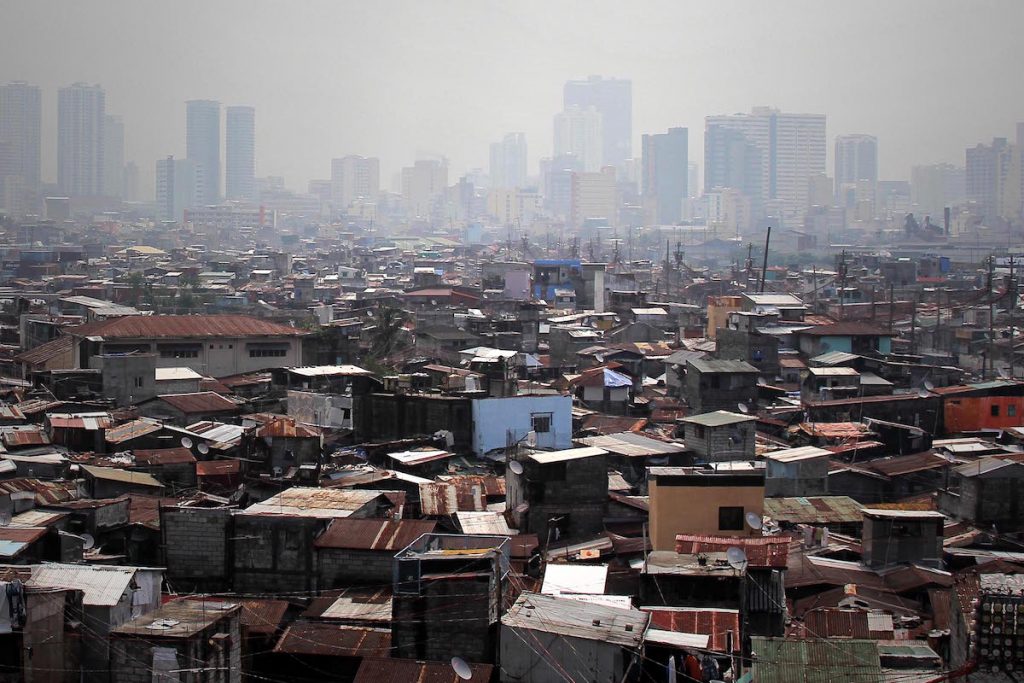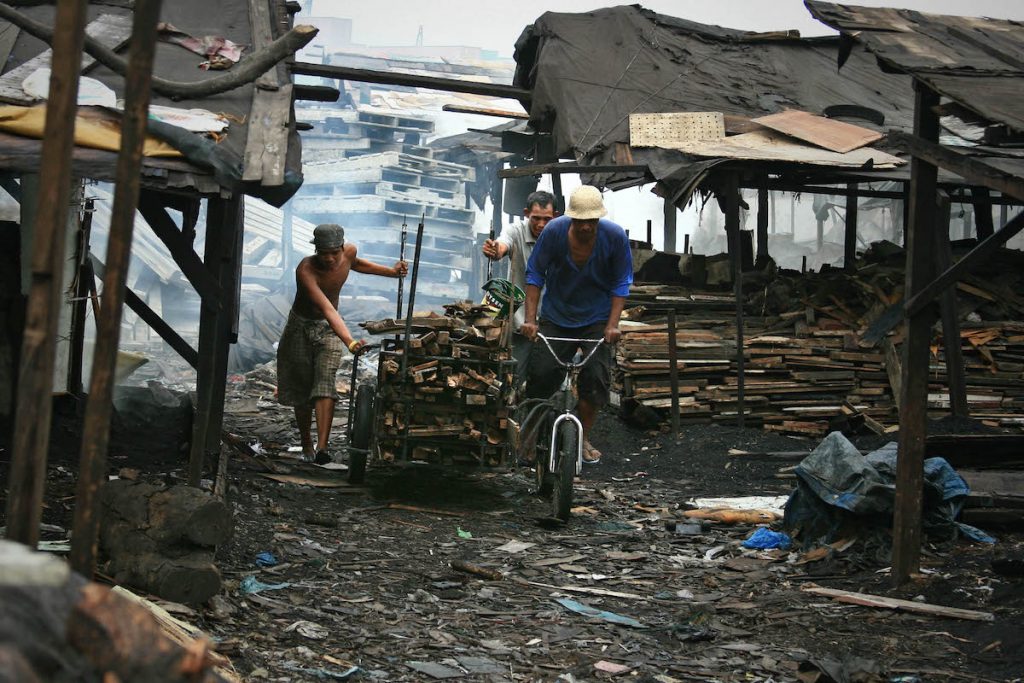Philippine President Rodrigo Duterte has expanded the government’s COVID-19 lockdown to include all provinces in the Philippines’ main island of Luzon.
Aides pre-taped the president’s address, hoping, in vain, that he would stick to a script laying out do’s and don’ts for Luzon’s 48.5 million residents.
The result was greater confusion, with Duterte undermining lockdown goals by joking of the Justice Secretary’s refusal to shake his hand and insisting on doing the rounds and joining checkpoint forces, many of whom still do not have protective gear.
“I will go out. I do not believe in that … because I have a different doctrine in life, that if it’s my time, then it’s my time, whether I go via COVID, a bullet, or a crash,” said the president in the national language after threatening defiant citizens with arrests.
As Duterte spoke, the camera showed Justice Secretary Menardo Guevarra wincing and Health Secretary Francisco Duque struggling to maintain his poker face.
(As of 12 noon on March 17, the Philippine Health department listed 45 new cases of COVID-19 in the country, bringing the total number of cases to 187. A total of four people have already recovered, according to the Health Department while at least 12 patients have died.)
The unusually high death-case ratio is due to under-testing. The health secretary said the country lacks kits. Many under-the-radar carriers have led to community transmission.
Many of the new cases have not traveled to outbreak areas, neither do they have known contacts with confirmed COVID-19 cases.
There is no doubt of the need for a lockdown. At least four million of Metro Manila’s 12 million residents live in slums, where five to ten people cram into shanties as small as ten square meters.
The national capital’s train system is beset with overloading, with lines of commuters spilling over from stations to streets. Congested roads have forced workers to patronize motorcycle rides.
But the government’s cavalier attitude toward the poor adds to the risks they face during this contagion.

Duterte’s March 16 address came hours after workers living in the border towns of Rizal province, just east of the capital region, panicked after police announced they would close the main bridge link.
Scenes of people begging to pass, racing on foot to pass before the lockdown, went viral. They had been told to report on March 16 by companies struggling to decipher the previous metro-wide quarantine order, which government officials modified by the hour. They endured four hours of travel to their workplaces and more hours going home.
Everyone, save for those in the food delivery and health sector, were told to stay home during the new lockdown phase. The thriving business process outsourcing and telecommunications sectors were asked to trim workforce to skeletal levels. Construction has ground to a halt.
Feeding the poor
Duterte, whose contingency and intelligence funds make up more than half of his office’s US$159 million budget for the year, demanded that private companies help feed the capital’s poor, many of whom also have to buy their drinking water.
He also asked private firms to advance money to displaced workers but stressed they had no legal obligation. He ordered grassroots governing bodies to take charge of feeding the poor but offered no clear mechanism.
“Just go around, check who are hungry,” he said, threatening reprisals against under-performing village officials.
The Social Welfare Department, citing health risks, suspended its unconditional cash transfer program and other aid to 420,000 registered indigents (people in need), instead promising to course food packs through local government units.
But the list of indigents does not include the working poor, who comprise from 20 to 38 percent of the capital’s 5.7 million labor force, who live mostly in slum districts.
Because they are categorized as “underemployed,” they do not receive indigent benefits.
“As usual, it is the poor who suffer the most when a first world concept (like lockdown and social distancing) is applied in a third world setting,” lamented Bishop Pablo Virgilio David of Kalookan.
“They have no social benefits … They have no days-off, no maternity/paternity leaves, no vacation, no paid leaves,” said Bishop David. “It’s always no work, no income for them. And no income means no food on the table. Period.”

In the urban poor communities, he added, ten to 20 percent of residents are undocumented with no basic legal documents to present for welfare services.
The Interior Secretary, Eduardo Año, said those not covered by food pack services should go out and buy a week’s supply of food to ease health pressures.
Legislator Ruffy Biazon, whose district includes urban poor enclaves snapped back.
“Reality check: I have many constituents who can’t even afford to buy one fourth bottle of [soy sauce]. What more a week’s supply,” he tweeted.
But Año, who is in charge of local governments, appeared irked at reporters’ questions, accusing them of nitpicking.
Financial experts also say the private sector cannot be left alone with the burden of supporting the poor and responding to Duterte’s “vague wish list.”
“It is not enough and even irresponsible to leave businesses especially small and medium enterprises who employ the vast majority of workers in the metropolis, to their own devices. They are ill equipped to do this,” said Alex Aquino, who helps overseas workers establish small business for their families back home.

There’s plenty of love for the poor going around in the time of COVID-19.
Ordinary citizens are discussing what Bishop David calls creative and out-of-the box responses for the needs of the poor and beleaguered health workers calling out for protective gear.
But even the best plans could be hampered by the blanket ban on movement.
The government wants all aid to go through state agencies. It’s reasonable, given the grave situation. One or two cases in the slums could break the health system.
The lockdown’s goal is clear: to save lives. But unless the government gets its act together and expands delivery of basic services, Duterte’s arrogant, off-the-cuff style of governance could just worsen the coming disaster.
Inday Espina-Varona is an award-winning journalist in the Philippines. She is a recipient of the “Prize for Independence” of the Reporters Without Borders in 2018. The views expressed in this article are the opinions of the author and do not necessarily reflect the editorial stance of LiCAS.news.








